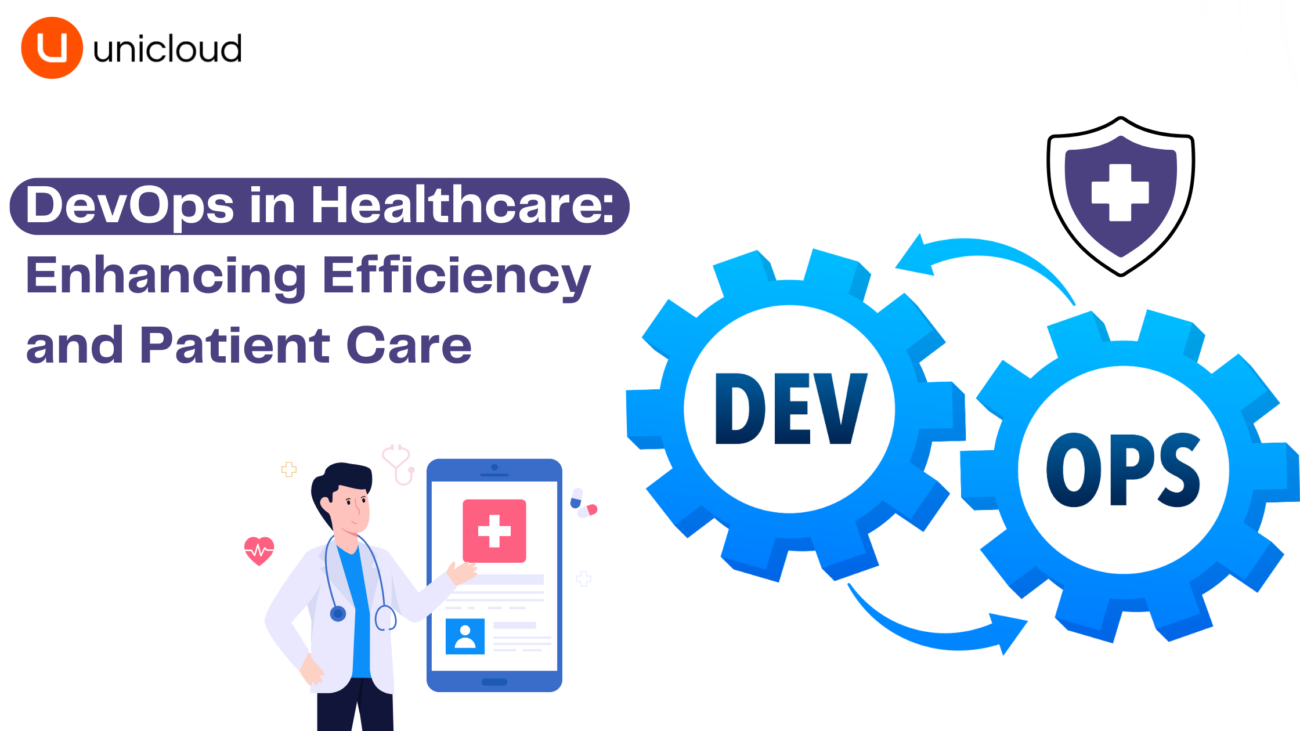
In the rapidly evolving world of healthcare, the integration of development and operations, or DevOps, is revolutionizing how IT services are delivered and managed. This transformation is not just a boon for software development teams but is increasingly becoming a critical component in delivering high-quality patient care. In this blog, we delve into the world of DevOps in healthcare, exploring its benefits, challenges, and real-world applications, aiming to shed light on how this methodology is making a significant impact in the healthcare industry.
The Intersection of DevOps and Healthcare
At its core, DevOps is a set of practices that combines software development (Dev) and IT operations (Ops), aimed at shortening the system development life cycle while delivering features, fixes, and updates frequently in close alignment with business objectives. When applied to healthcare, DevOps transcends traditional barriers, fostering a culture of collaboration and efficiency that is paramount in an environment where the stakes are high, and patient outcomes depend on the seamless integration of technology.
Driving Efficiency and Innovation
One of the primary benefits of implementing DevOps in healthcare is the significant boost in efficiency and innovation it brings. Healthcare providers are under constant pressure to deliver quality care while managing costs and complying with strict regulatory requirements. DevOps facilitates a more agile response to these demands, enabling faster development and deployment of software solutions that can improve patient care, streamline operations, and ensure compliance with healthcare standards.
Enhanced Collaboration and Communication
The collaborative culture promoted by DevOps is particularly beneficial in the complex healthcare ecosystem, where multiple stakeholders, including clinicians, IT professionals, and administrative staff, must work together seamlessly. DevOps encourages open communication and collaboration, breaking down silos and ensuring that everyone is aligned with the organization’s goals. This holistic approach leads to more informed decision-making and a more cohesive strategy for tackling healthcare challenges.
Improving Patient Care with Technology
At the heart of healthcare is the commitment to patient care, and DevOps plays a crucial role in enhancing this aspect. By enabling the rapid development and deployment of software solutions, healthcare providers can offer more personalized and efficient care. For example, telemedicine platforms, electronic health records (EHRs), and patient monitoring systems are all products of this synergy between development and operations, offering real-time data and insights that can lead to better patient outcomes.
Addressing Security and Compliance Challenges
Security and compliance are paramount in healthcare, given the sensitive nature of patient data and the stringent regulatory landscape. DevOps, with its emphasis on automation and continuous integration/continuous deployment (CI/CD) pipelines, introduces more robust security protocols and compliance checks throughout the development process. This not only helps in identifying vulnerabilities early but also ensures that any software release complies with HIPAA and other regulatory standards, thereby safeguarding patient information.
Real-World Applications and Success Stories
The practical application of DevOps in healthcare is evidenced by numerous success stories across the industry. Hospitals and healthcare providers that have embraced DevOps report not only improvements in IT efficiency but also in patient satisfaction and outcomes. For instance, by using DevOps practices, a major hospital network was able to streamline the deployment of its EHR system, reducing downtime and improving access to patient data across its facilities. Another example is a healthcare software company that leveraged DevOps to accelerate the development of its patient engagement platform, enhancing communication between patients and providers and facilitating better health management.
Overcoming Challenges
Despite its numerous benefits, implementing DevOps in healthcare is not without challenges. Cultural resistance, legacy systems, and regulatory complexities can all pose significant hurdles. However, with a strategic approach that includes stakeholder engagement, tailored training programs, and a phased implementation plan, these challenges can be effectively managed. Additionally, choosing the right tools and technologies that comply with healthcare regulations is crucial for a successful DevOps transformation.
The Future of DevOps in Healthcare
As healthcare continues to evolve, the role of DevOps is set to become even more critical. Emerging technologies like artificial intelligence (AI), machine learning, and the Internet of Things (IoT) are opening new avenues for innovation in patient care, and DevOps will be key in harnessing these technologies effectively. Moreover, as the focus on patient-centric care grows, the agility and efficiency offered by DevOps will be instrumental in adapting to changing patient needs and expectations.
Unleashing the Full Potential of DevOps: Best Practices for Modern Enterprises
Conclusion
DevOps is more than just a methodology for efficient software development and operations; in the context of healthcare, it’s a transformative approach that can significantly enhance patient care, operational efficiency, and innovation. By fostering a culture of collaboration, automating processes, and continuously improving software solutions, healthcare providers can not only meet the challenges of today’s complex healthcare environment but also pave the way for a future where technology and healthcare are seamlessly integrated for the betterment of patient outcomes. As we move forward, the adoption of DevOps in healthcare is not just an option but a necessity for those looking to stay at the forefront of medical innovation and care.
